The following chapter was written with my children in mind - adults might skip forward to 'Perception'
Words
In the beginning was the Word,
and the Word was with God,
and the Word was God[6]
Humans have had words and complex language for at least 100 thousand years. Yet only in the last tenth (some would say one thousandth) of that time have we unleashed their power.
Words and groups of words stand for ideas, but individually they are the ideas themselves. Some think words are the only ideas we can have. Words are certainly essential to what it is to be human – to think in a human way.
For us words have hidden meanings associations and poetry that belies their apparent simplicity.
Consider a haiku of a few simple words:
Road from Banbury
A man spilled from his crushed car
Dead eyes full of rain
A whole drama in three lines. And we know Banbury from childhood. It's where you go 'to see a fine lady upon a white horse'.
Many words are so familiar they seem simple but very few words are simple. In this section I want to show you just how subtle words can be.
The deconstructionist French thinker Jacques Derrida is famous for the saying 'il n'y a pas de hors-texte' or 'there is nothing beyond the text', meaning (perhaps) that our experience can only be through words we inherit; without them there would be no experience; no meaning; no ability to think. I will talk more about this later and I will explain why I think this is going too far unless the word 'word' is used in an unusual way.
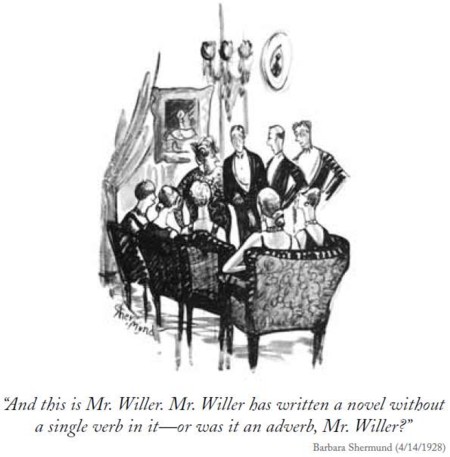
Some words are like pictures we each understand (mum) sometimes they stand for all the things of that kind (mother) and sometimes their meaning can only be explained with lots of other words (feminine, sibling, mammalian, social security).
Even so, when someone says mum to you, each thinks something different. And you don't quite know what the other thinks or feels about that person. So you see, often people mean quite different things when they use the same words. People reading my words might get a different picture from the one I intended when I wrote them.
If we have owned cats; have watched them eat and lie in the sun and play and fight and have kittens; we know that different cats have different 'personalities'. When we talk to others about cats we might bring these things to mind; and the things special to a particular cat. But if the person you are talking to knows no more about cats than you do about penguins, you might have to do quite a bit of explaining if you wanted to tell them why you feel as you do about a particular cat.
Before a child can read a book, they look at the pictures and they tell a story. Sometimes the story is like the one written in the book. But other times the child sees a quite different story in the pictures; one they make up themselves. In one sense each word is its own picture. As soon as I start using words I have to be careful that the story that I mean to tell is the one my audience will see or feel in my word picture.
Lots of words have two or more meanings depending on when they are used. To understand them we have to have learned the concept that the word stands for. We also have to understand which meaning is intended by looking at the other words around it or at when it is said (its context). 'Cat' is the simplest of words but like many it can only be explained using many other words and then only 'through a glass darkly'.
Many jokes require familiarity with cultural norms or traditions. This one relies on your recognition of a 'tongue-twister':

Jokes often rely on using words or concepts out of context or on changing the context unexpectedly.
In the joke 'My dog has no nose' - 'How does he smell?' – 'Terrible' the word 'smell' has two meanings. The joke Relies on the first meaning: the dog can't smell because it has no nose; being set first. The joke is that the second meaning; the dog stinks; is the one intended. Changing the context unexpectedly makes us laugh. 'How does your dog smell'; 'Terrible' is not funny.
This illustrates yet another problem; word meanings are not stable over time. The word 'terrible' has changed its meaning. Once it would have meant that the smell terrified us.
One person not understanding the other causes a lot of the arguments between people. This might be because the words used make some listeners see a different picture or feel a different thing from that intended by the speaker or it might be because the words have no meaning for some listeners.
If we don't understand words we can't use them but they can't scare us either. At one time the names Tyr, Woden, Thor, Freya and Saturn, the gods the days of the week are still named after, caused a feeling of awe or fear in the listener. You might have prayed to Freya for love or beauty. If you used a god's name in a joke or dismissed it you might be struck by lightning or have something terrible happen to you.
Until recently Englishmen prayed:
'Scatter our enemies and make them fall;
confuse their politics;
frustrate their knavish tricks;
on thee our hopes we fix;
God save us all'.
This is the second verse of 'God Save the Queen'. When I was at school it was still the Australian National Anthem and I wondered why we would always sing the first and the third verses only.
Nowadays reference to an almost forgotten God might raise your interest, make you bored or make you think, 'What on earth does that word mean?' In addition to the days of the week other Gods were once feared or revered. Easter is named after the Goddess Estre (of spring; if you don't give eggs and revere the hare on the last full moon in winter; no crops this year; no oestrous for women and animals and possibly no sun in the east).
All words stand for, or are themselves, concepts in the minds of the speaker and the listeners. They only work because when we learn a language we are learning to understand the concept that the word stands for and how and when it is used.
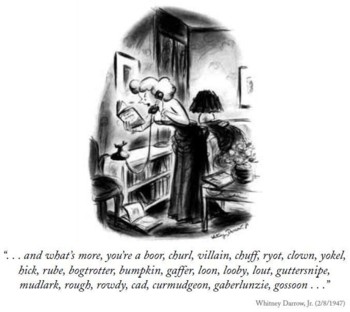
In George Orwell's book '1984' the ruling party systematically limits the number and meaning of words, corrupts their meaning and revises the history of the events they refer to. This prevents people expressing their ideas or feelings. But it might do more; it might prevent the ideas ever forming; more about this later.
During the war in Vietnam some Americans suggested using the atomic bomb on the North Vietnamese. But it was said that to threaten them without actually using it was useless because the ordinary people there had no concept of an atomic bomb. For the same reason the United States decided to drop the first atom bomb on 200,000 people in Japan rather than demonstrate it on some deserted island. People quickly learnt what an 'Atom Bomb' was.
In some languages nouns that have no gender in English are considered to be male or female. Sometimes the same kind of thing is female in one language and male in another. 'Bridge' and 'key' have different genders in German and Spanish. Studies show that speakers of these languages associate different ideas with these words. They see the female objects as shapely, graceful, poetic or beautiful while the male objects are seen as strong, brutal, reliable, jagged and so on.
Poets (and pun makers) know that words are not just bound to a meaning but they have a sound and a spelling, which are equally parts of their identity. So a rhyme, or a similarity in spelling, might tie two quite different ideas together or set them against each other. It might be funny, it might cause us always to think of two things together (sometimes when we don't want to) or it might even start a war.
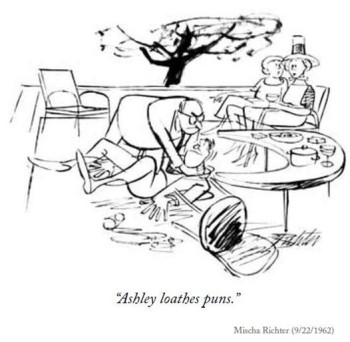
Here are some common examples of rhymes and puns and word use. The quotations I have used are ideas that have special meaning for me. I could have found a much wider variety but I wanted to use some that you are already, or will soon be, familiar with (you will have heard many of them before).
The first is a patriotic defiance of imperial power, when the United States retained their independence from Britain (in the war of 1812)[7]. It gives their flag a very special place in their hearts and still inspires Americans to believe that their country is or could be a Utopia (or at least the best country in the world) and to fight for the ideas that it stands for:
And the rocket's red glare, bombs bursting in air
Gave proof through the night that our flag was still there;
O say, does the Star-Spangled Banner yet wave
O'er the land of the free and the home of the brave?
The very threats (bombs and rockets) illuminated their courage and defiance; freedom was fought for through the night (minute by minute); the banner (a message or declaration) is likened to the heavens (star-spangled) and its wave rhymes with 'the free and the brave'.
The Japanese in December 1941 and al Qa'ida on September 11 2001 might have researched this 'birth in blood' better before bombing America; the most powerful country on Earth.
Equally powerful are the following words that also inspire people worldwide:
We hold these truths to be self-evident, that all men are created equal, that they are endowed by their Creator with certain unalienable rights, that among these are Life, Liberty and the pursuit of Happiness.
Although the word 'Life' is redundant (unnecessary) since it is implied by the other words, it adds rhythm and alliteration and makes the phrase a slogan.
The next example is a joke Limerick that plays on the similarity of the words phalluses and fallacies and the fact that Freudian psychoanalysis is obsessed with phallus (penis) envy and sexuality:
The girls who frequent picture palaces
Set no store by psychoanalysis.
Indeed, they're annoyed
By the great Doctor Freud
And cling to their long standing fallacies.
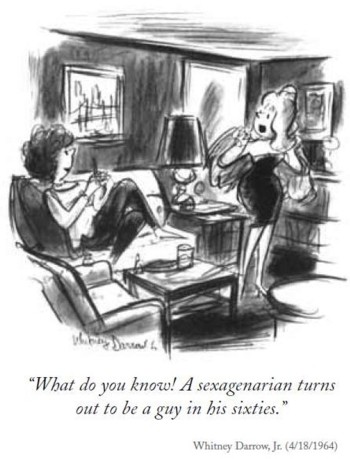
A poem by Blake, set to music, has become an anthem in England (and elsewhere). It has inspired both Christians and Socialists to seek social reform while at the same time suggesting that England could be the Promised Land:
And did the Countenance Divine
Shine forth upon our clouded hills?
And was Jerusalem builded here
Among these dark satanic mills?
In the next Limerick the rhyme suggests different words to the ones used. But is quite clean, if a little odd, to the 'pure of mind'. Here the words are not even present (though the ideas they represent are):
There was a young maiden of Dee
Went down to the water to swim.
A man in a Punt
Stuck his pole in her eye
And now she wears glasses you see.
In Alice in Wonderland, Pat who works for the White Rabbit is digging for apples. This is a joke for children learning French because in French apple is 'pomme' and potato is 'pomme de terre' or earth apple. Pat is Irish and around a million Irish people died in the late 1840's when there was shortage of potatoes. Alice is full of this kind of multiple meaning.
One of the most famous statements about words and the things they attach to comes from Romeo and Juliet. Juliet has fallen in love with the person and character of Romeo but he has the name (and all that goes with it) of her enemy. Can he be the boy she loves by some other name?
'Tis but thy name that is my enemy...
O, be some other name!
What's in a name? that which we call a rose
By any other name would smell as sweet;
So Romeo would, were he not Romeo call'd,
Retain that dear perfection which he owes
Without that title. Romeo, doff thy name...[8]
The audience knows Romeo cannot cast off what it is to be a Montague and it will end badly. To make this point, Shakespeare uses a rose as his metaphor. He is reminding his audience of the Wars of the Roses that tore England apart through feuding between noble houses. Even 'rose' has several meanings.
Words can be rich and they can be terrible. Some people fear words and ideas because they know that they make us what we are (and different to them).
Lolita, recognised as one of the ten greatest books written in the 20th century, is periodically criticised by people scared by its power to influence (many of whom haven't read it). They think that people who do are (often, sometimes?) turned into child molesters. Lolita is about a forbidden, destructive relationship and shows us subtleties in relationships seldom so clearly expressed. The author, Nabokov uses words in the most extraordinary way and has the power to change the way we think about things. It is a book everyone should read.
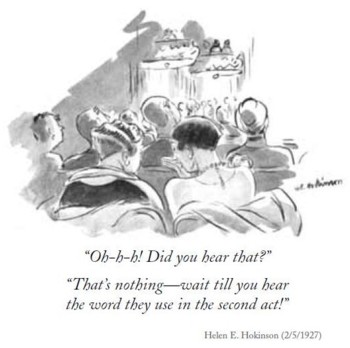
Because all concepts are constructed (made up) from other words there can be no idea that is not a construct. Some thinkers say that lots of things, that are generally believed to be true by us, may be just ideas that our society has made up (constructed) and given words to.
This is one of the ideas behind postmodernism and deconstructionism (see Michel Foucault[9] and Jacques Derrida). Postmodernism uses deconstructionism to oppose theories of everything and to question society's power structures and cultural assumptions. In particular postmodernists are suspicious of science based on 'logical positivism'.
Logical positivism is sometimes called scientific method. I will tell you more about this later. The postmodernists' dislike of logical positivism is a bit odd because postmodernism is pretty well a theory of everything and logical positivism says that nothing can be certain.
People once believed in fairies and unicorns. We believe in atoms and dinosaurs. How is that different? Most scientists think it is different but many postmodernists would claim they are wrong. As I said earlier unless we define the word 'word' in a very strange way, the idea that words or text can fully describe the way we think seems to me ridiculous.
For example if I think about a simple problem like '50 ways to crack a nut' I can do this entirely without words. I imagine devices like pliers or ones that wind-up, like a vice, or ratchets or weights that drop or spring-loaded or pump-up devices. To communicate these effectively to others I would be more likely to draw them than try to write about them but I might have to do both; just to describe ideas I see quite clearly and can play with in my head.
If I ask you to think about the theme to the 'Simpsons', or about a tune you like, you don't put it into words or musical notation, you hear it in your head. If you had to communicate it, you might sing it to me.
If you need to go to the Supermarket you don't have to put the route into words or even think it out, you can go there because you 'know' the way. What's more, you can go there on the way home from somewhere else by a new route. You don't have to go home first so that you can follow your usual route. You have an idea about the relationships of the places, streets or buildings in your head but you don't have to see it like a paper map.
If you think about a picture you are drawing, you don't think it out in words first. You draw your ideas directly onto the paper. Similarly you know a lot about places and people that is never put into words at all. Think about touch and smell and sounds: leaves rustling, sun glinting, water rippling, the feeling of surf, fresh sheets or the smell of fresh bread.
Many of these non-verbal ways of thinking probably evolved before we had words and have gone on evolving since. So words are not essential to thought and thought may well evolve beyond words.

